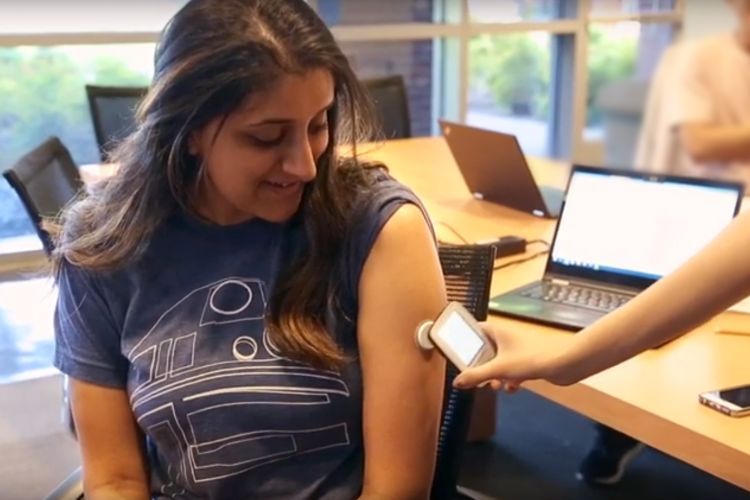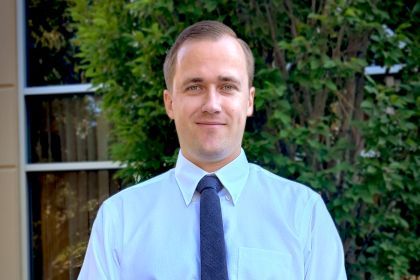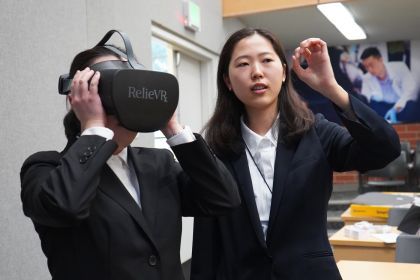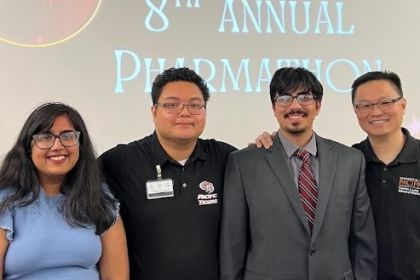Breadcrumb
Novel study shows glucose levels can be different between left and right arm

The selection of either the right or left arm for continuous glucose monitoring (CGM) device placement could potentially affect the glucose readings collected by the devices
Based on a study conducted by researchers at University of the Pacific’s Thomas J. Long School of Pharmacy, the selection of either the right or left arm for continuous glucose monitoring (CGM) device placement could potentially affect the glucose readings collected by the devices. Ultimately, this could have an impact on interpretation of the readings, decisions regarding therapy and clinical trial design.
A significant finding of the study was glucose readings were significantly higher in the right arm compared to the left arm. Volunteers were alerted to having low blood glucose 30 percent of the time on the left arm, in comparison to 22 percent of the time on the right arm.
The study included 46 generally healthy volunteers, between 18-65 years of age. On the first day of the study, each subject received simultaneous placement of two continuous glucose monitoring (CGM) devices. Sensors were placed on the back of the right and left upper arms. Glucose readings were collected every 15 minutes for 12-14 days, generating over 41,000 total data points of pairs of time-matched glucose levels.
“This is an interesting finding and if similar results are seen in patients with diabetes potential implications on study design and data interpretation should be considered,” said Sonoko Kawakatsu, PharmD, co-primary investigator and clinical pharmacology fellow at University of the Pacific.
This study is a follow up to one conducted by Pacific’s researchers using 10 volunteers, which was published in Digital Health. There are several different types of continuous glucose monitoring devices on the market and these findings may not translate to all brands. Additional research is needed, including research with patients with diabetes.
“Our fellowship has an emphasis on clinical research and innovation,” said Jeremy Lim ’12, PharmD, co-director of Pacific’s Fellowship in Industry Program and senior clinical scientist at Genentech. “We are very excited to have the opportunity to train our talented fellows and proud to see their accomplishments, such as presenting original clinical research at international congresses like the American Heart Association.”
The results of the study were presented at the American Heart Association’s 2020 Annual Meeting, held virtually November 13-17. In addition to Drs. Kawakatsu and Lim, the study’s coauthors include Xiaohan Liu ’19, PharmD, Brandon Tran ’21, Brittany Tran ’21, Lucy Manzanero ’20, PharmD, Eric Shih ’20, PharmD, Allen Shek, PharmD, professor of pharmacy practice and associate dean of professional programs, and Sachin A. Shah, PharmD, FACC, FAHA, professor of pharmacy practice, regional coordinator and director of pharmacy research and education at Travis Air Force Base.





